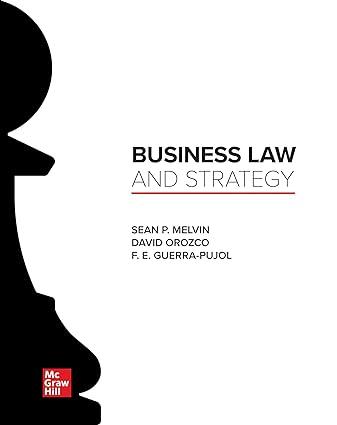Smart World Technologies was a technology company that generated revenue through advertising to users of their free
Question:
Smart World Technologies was a technology company that generated revenue through advertising to users of their free Internet access points. In 1997, Smart World began to use a prospectus to offer “membership interests” in the company to the public which were not registered under the ’33 Act. Based on the prospectus, Stolz, an investor, purchased $250,000 worth of the unregistered securities, which became effective on April 28, 2000. Smart World, unable to survive the bursting of the tech bubble, filed for bankruptcy in June of 2000.
Stolz filed suit against Smart World and three of its officers alleging that Smart World’s prospectus contained material misrepresentations in violation of the ’33 Act. Smart World argued that there was a sufficient balance with the alleged misrepresentation such that no reasonable investor would be misled about the nature and risk of the offered security. Smart World provided cautions about the need for additional capital, risks in obtaining financing, market value, and other important investor risks.
CASE QUESTIONS
1. Were Smart World’s disclosures sufficient to bar the investor’s claim under the bespeaks caution doctrine? Why or why not?
2. Give an example of specific language that Smart World could have used to increase the likelihood that the statements would negate any alleged misrepresentations.
Step by Step Answer:

Business Law And Strategy
ISBN: 9780077614683
1st Edition
Authors: Sean Melvin, David Orozco, F E Guerra Pujol





